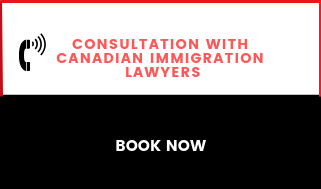Categories of people who are eligible to bring their families into Canada:
- International Students/ Skilled Workers
- Post Graduate Work Permit (PGWP) holders
- Permanent Residents (PR) and Citizens
Eligibility criteria:
Spouses or common-law partners (Full-time students)
You must provide authentic documents to prove that you are a full-time international student’s spouse or common-law partner who holds a study permit from a post-secondary education institute.
The institutes can be:
- A trade or technical school
- Colleges
- Universities
- Any Canadian private institution authorized by the respective provincial statute to confer degrees (Bachelor’s, Master’s, or Ph.D.)
- CEGEP in Quebec
- A private institution governed by the same regulations as a public post-secondary institution in Quebec
- A public post-secondary institution in Quebec
- A private or public post-secondary institute offering diploma programs exceeding 900 hours in vocational studies or specialization in Quebec
You can take up employment in the general market without an LMIA, and you are eligible for open or restricted work permits (depending on the results of a medical examination). An offer of employment is not necessary for a work permit to be issued for spouses.
You would also like to read about Canada Study Permit Refusal – What to do?
Spouses or common-law partners of open work permit holders (PGWP) [C41]:
The following documents should accompany the application for spouses.
- Documents to show that your spouse, the work permit holder/foreign worker, is employed at skill level 0, A, or B. This is necessitated as the IRCC cannot assess the skill level based on the open work permit alone.
- A copy of the principal worker’s current employment offer/contract or a letter from his current employer confirming his employment.
- Copies of the last three payslips.
Spouses or common-law partners of Permanent Residents or Citizens:
If you are a citizen or Permanent Resident (PR) of Canada, you can sponsor your spouse as a Permanent Resident. You do not have to apply for a work permit or a Temporary Resident Visa.
If you have any questions regarding sponsoring your family or want to know more clarifications, you can either give ImmiLaw Immigration a call or write to us. Our immigration lawyers are happy to help you and will clarify all your doubts regarding Canadian immigration.


